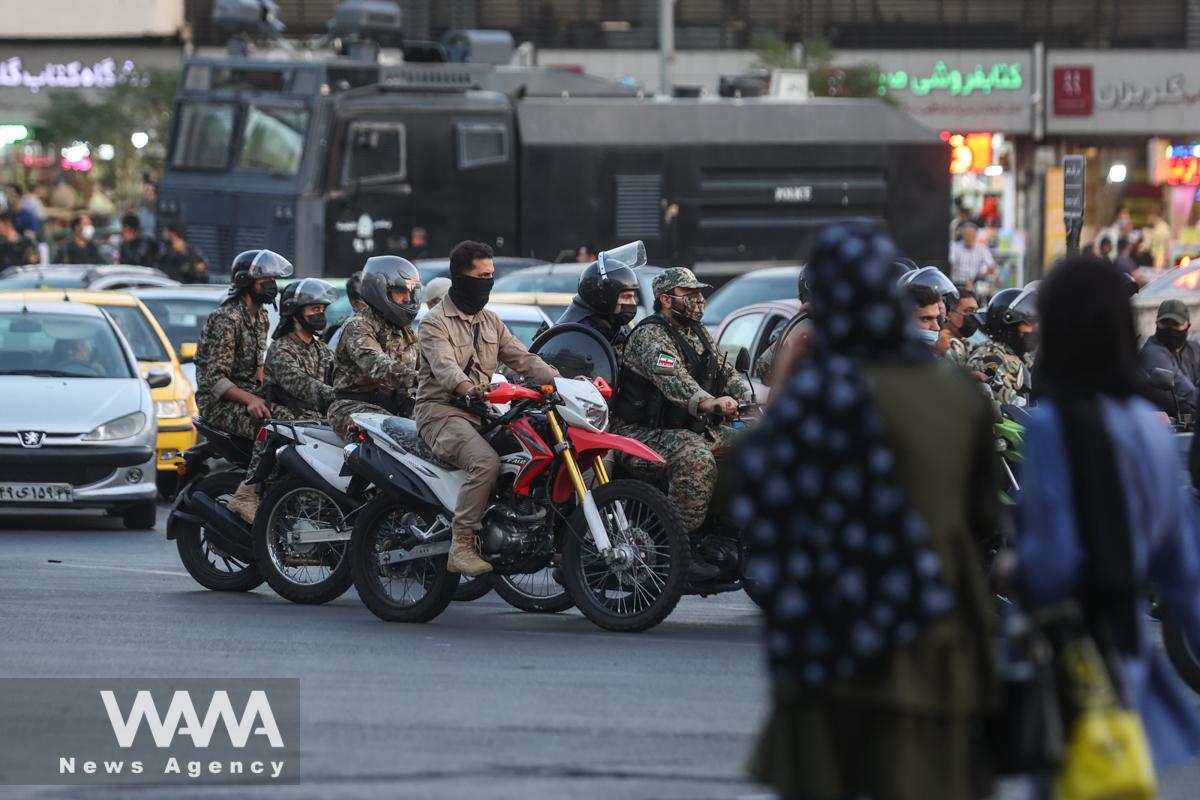Fresh Strategies to Ignite Unrest and Topple Iran’s Regime
WANA (Dec 31) – In recent months, multiple pieces of evidence have indicated that foreign adversaries are attempting to exploit internal tools to incite chaos in Iran. Particularly after the failure of the 2022 riots, they are focused on rebuilding anti-regime networks and strengthening internal opposition groups. From U.S. officials to Israeli regime leaders, there have been explicit or implicit statements signaling their desire for structural change in Iran.
U.S. Secretary of State Antony Blinken, in the final days of his tenure, responded to a question in an interview with the Council on Foreign Relations (CFR) about whether the U.S. should adopt a regime-change policy in Iran and how it should support the Iranian opposition. He said:

Over 350 million tweets sent in recent Iran’s unrests: MP
WANA – A member of Islamic Consultative Assembly or Majlis (Parliament) says that during the recent protests and unrests in Iran over 350 million tweets were sent to distort people’s minds. Nasrollah Pejmanfar who is the head of Article 90 of the Constitution Commission of the Majlis said: “The enemy’s method is to create […]
“If we look at the past 20 years, our attempts at regime change have certainly not been notably successful. However, we should focus on anything that shifts policy and deters Iran from actions that threaten our interests. What we’ve tried to do at various times is to empower as much as possible the people inside Iran who want a different future. But I’m the first to admit it’s truly difficult to engineer such change from the outside.”
Despite this acknowledgment, Blinken emphasized the U.S. must continue to support the Iranian opposition with full force.

U.S. Secretary of State Accuses Iran of Nuclear Weapons
WANA (Dec 19) – In a statement on Thursday, U.S. Secretary of State Antony Blinken accused Iran of pursuing nuclear weapons and acknowledged his country’s unsuccessful attempts to interfere in Iran’s internal affairs. During a discussion with the Council on Foreign Relations, Blinken claimed that recent regional developments might have made Iran more inclined […]
This admission by the U.S. Secretary of State was also echoed by Donald Trump during his campaign. This recognition of the failure in engineering regime change in Iran highlights the complex social and political landscape of the country. Nevertheless, the expressed determination to “support a different future for the people of Iran” underlines Washington’s ongoing interference in the nation’s domestic affairs.
Recently, Israeli Prime Minister Benjamin Netanyahu also directly targeted Iran’s internal dynamics in a promotional video. In the video, he urged Iranians to prevent any military response from Iran to an Israeli attack, ending with the slogan “Women, Life, Freedom.”
Netanyahu appears convinced that “Operation True Promise 3,” as a response to Israel’s assault on Iran, is inevitable. Consequently, he is using all available tools to influence the outcome of this operation.

Israel’s Miscalculations: Why Tel Aviv’s Perceptions of Iran Are Flawed
WANA (Oct 30) – Recently Iran’s Supreme Leader, in a meeting with the families of security martyrs, responded to Israel’s recent attacks on Iran, stressing, “The Israeli regime is making serious miscalculations regarding Iran, and these mistakes need correction.” He added, “They don’t understand Iran, its youth, or the nation’s strength and resolve. We must […]
Addressing the Iranian public, Netanyahu claimed that Iranians do not want war, just as Israelis oppose it. However, he asserted that it is Iran’s leadership and government that focus on “Israel’s destruction.”
Netanyahu further claimed that Iran’s most recent missile attack on Israel cost Iran’s government over “$2.3 billion,” though no specific details about how this figure was calculated were provided.
He accused Iran’s rulers of prioritizing their “obsession with Israel’s destruction” over investing in healthcare, education, and development.
Netanyahu warned that if Iran launches another attack on Israel, it would result in “crippling Iran’s economy.”

Iranian celebrities, anything for International recognition
WANA (Mar 05) – In an age where social media is the primary source of information for people everywhere in the world, celebrities and influencers have received a comprehensive platform to perform on. While some use this platform to spread positivity, others become a tool of capitalism. Many countries have ratified guidelines and laws […]
Based on statements by both Netanyahu and Antony Blinken, it seems that adversaries have serious plans for unrest and street riots in Iran. These messages serve as signals to anti-regime groups within the country to rebuild their disrupted networks from 2022 and prepare for action.
The Supreme Leader of Iran, in two recent speeches, also referred to possible enemy conspiracies, stating: “An American official has claimed—indirectly yet clearly—that ‘anyone causing unrest in Iran will receive our support.’ They don’t say it explicitly, but it is evident what they mean. The fools smell kebab, but they will only get burned! The Iranian people will crush anyone who serves as America’s mercenary in this matter underfoot.”
Additionally, two weeks ago, he said: “If either of these situations [internal unrest or the establishment of a dependent government] occurs in the country, it is a result of the enemy’s hand, and the Basij must stand against it.”

Iran’s Supreme Leader: The Iranian Nation Will Crush America’s Agents
WANA (Dec 22) – This morning (Sunday, December 22, 2024), in a meeting at Imam Khomeini’s Hosseiniyeh, the Supreme Leader of the Islamic Republic emphasized: “The Iranian nation will trample underfoot anyone who accepts being a mercenary for America.” He asserted that the Iranian people stand firm against America’s domineering policies and will neutralize their […]
The Iranian leader highlighted two clear objectives pursued by foreign powers against Iran:
1. Creating internal unrest: Efforts to foster social divisions, provoke various groups, and spark widespread riots.
2. Establishing a dependent regime: Attempting to install a puppet dictatorship akin to the pre-Islamic Revolution era.
Iran’s Supreme Leader:
“The U.S. strategy for dominating nations follows one of two paths: establishing either tyranny or chaos.
In #Syria, they created chaos and now delude themselves into thinking they’ve succeeded.
A #US official subtly claims, “We’ll support anyone… pic.twitter.com/N7SNjPChEi
— WANA News Agency (@WANAIran) December 22, 2024
It seems Iran’s adversaries are employing a combination of soft power (media and social networks) and hard power (field agents and sabotage) to achieve these two goals.
What is clear is that Iran is currently facing a hybrid challenge: external pressures, psychological warfare, and the exploitation of internal fault lines. As even adversaries have acknowledged, Iran’s experience in confronting these threats in recent years demonstrates that strategic management and trust in the people are key to navigating crises.
This raises critical questions: Are Iran’s military, security, law enforcement, and judicial systems prepared to counter the enemy’s potential plans? Does the Basij, as a popular force explicitly tasked by the Iranian leader to confront such enemy schemes, have the necessary readiness? And are government officials fully aware of the enemy’s plans under the guise of addressing shortcomings and challenges?

A failed attempt to have another symbol for riots
WANA (SEP 5th)_ As the anniversary of the tragic death of 22-year-old Mahsa Amini in the custody of Iran’s morality police approaches, the nation finds itself in a state of reflection and unrest, giving rise to rumors and discussions about what the coming days may hold. In September 2022, widespread protests erupted across Iran, […]













